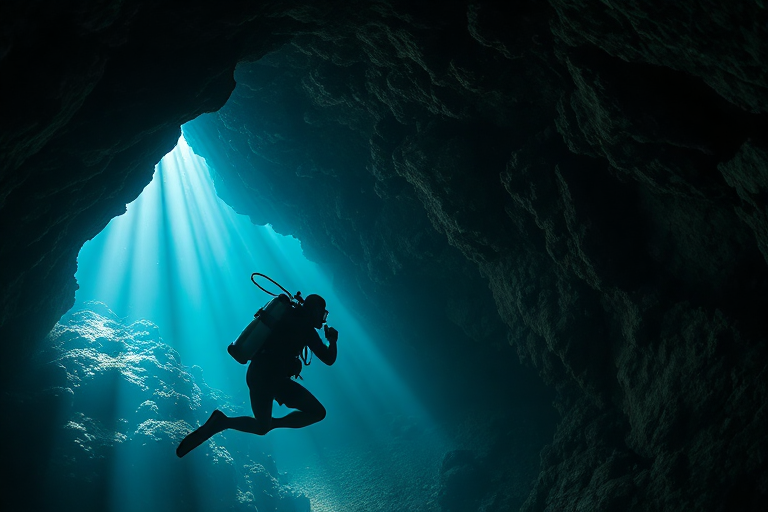
Cave diving is one of the most thrilling yet challenging forms of underwater exploration. It combines the beauty of underwater landscapes with the adrenaline of navigating through confined spaces. However, it’s not for the faint-hearted. Here are 10 essential things you need to know before embarking on a cave diving adventure.
1. It Requires Specialized Training
Unlike open water diving, cave diving demands specialized training. You need to learn advanced techniques such as line laying, gas management, and emergency procedures. Organizations like the National Association of Cave Divers (NACD) and the Cave Diving Section of the National Speleological Society (NSS-CDS) offer courses that are essential for anyone serious about cave diving.
2. Equipment is Crucial
Your standard scuba gear won’t cut it for cave diving. You’ll need specialized equipment like redundant air supplies, powerful underwater lights, and reels for laying guidelines. Each piece of equipment is designed to enhance safety and efficiency in the challenging cave environment.
3. The Importance of a Guideline
In cave diving, a guideline is your lifeline. It helps you navigate through the complex cave systems and ensures you can find your way back to the entrance. Losing the guideline can be fatal, so it’s crucial to always stay connected to it.
4. Gas Management is Key
Proper gas management is critical in cave diving. You need to calculate your gas consumption meticulously and always have a reserve. The rule of thirds is commonly followed: one-third of your gas for entering, one-third for exiting, and one-third as a reserve.
5. Psychological Preparedness
Cave diving can be mentally taxing. The confined spaces, darkness, and potential for disorientation require a strong mental state. Psychological preparedness is as important as physical training when it comes to cave diving.
6. Environmental Awareness
Cave environments are fragile and can be easily damaged. Divers must be aware of their surroundings and avoid touching or disturbing the cave formations. Conservation is a key aspect of responsible cave diving.
7. Team Diving is Essential
Cave diving is not a solo activity. Diving with a team ensures that there’s always someone to assist in case of an emergency. Team members should be equally trained and familiar with each other’s diving styles and signals.
8. Emergency Procedures
Knowing how to handle emergencies is crucial. This includes dealing with equipment failure, gas supply issues, and disorientation. Regular practice of emergency drills can make a significant difference in real-life situations.
9. Physical Fitness
Cave diving is physically demanding. You need to be in good shape to handle the long dives, strong currents, and sometimes challenging cave entrances. Regular exercise and stamina-building activities are recommended.
10. Respect for the Environment
Lastly, always respect the cave environment. This means following all guidelines, not disturbing wildlife, and leaving no trace. Responsible diving ensures that these beautiful underwater caves remain pristine for future generations.
Leave a Reply